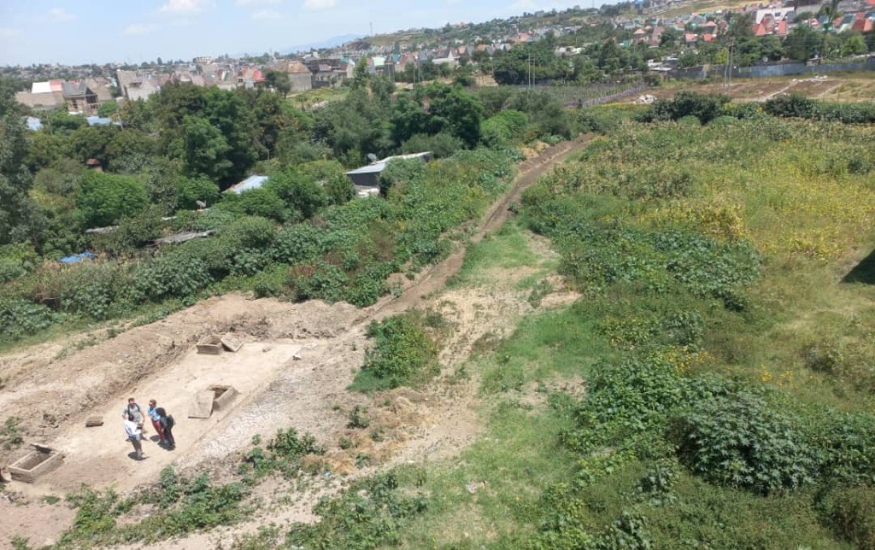The city of Adama, like many other cities in Ethiopia, suffers from poor sanitation in the 'condominiums'. The Blue Deal partnership in the area is contributes to a Nature-Based Solution: constructed wetlands. So far, the partnership has created 2 wetlands in Shashemene and is now working on a new wetland in Adama. Read all about the project and watch a movie in which residents speak about what the wetlands mean to them.
The condominiums are construction projects with which the government is trying to accommodate the increasing group of people moving to the cities. These condominiums are not connected to the sewer network; the waste water is collected in septic tanks that are buried around the houses. These tanks must be emptied regularly by suction trucks so that they do not overflow.
However, the condominiums are often inhabited by Ethiopians who do not have much money. They often cannot afford the costs of having their septic tanks emptied. In practice, this causes the tanks to regularly overflow. Sewage flows between the houses – where children play – and leaks into nature and nearby lakes. The residents suffer from odours, health problems and see their environment deteriorate.
Plants and stones purify the waste water
There is a great need for a solution to this problem. Connecting these condominiums to the sewer network is a long-term process, and in the meantime, residents and the surrounding area have daily concerns due to the overflowing tanks. The Blue Deal partnership for Waste water in the cities of Shashemene, Adama and Hawassa, together with the NWB fund, contributes to a Nature Based Solution: constructed wetlands. Within such a constructed wetland, a septic tank is still used to collect ‘solid waste’, but the rest of the waste water flows through to a container in which a combination of specific local plants, stones and gravel is used to purify the waste water.

Watering crops or flushing toilets
After purification, this water cannot be drunk, but it does have other uses. The Blue Deal partnership helps monitor water quality so that it becomes clear what the water can be used for. This includes watering crops (at the root) or flushing toilets.
This way of collecting and purifying water ensures that the polluted water does not end up in nature. Another benefit is that wetlands are micro-ecosystems that increase biodiversity. They attract insects and birds, and also provide a cooler and greener environment in the middle of the hot city.
The benefits are diverse
In April, the team that will be working in Adama went to look at these wetlands. We spoke to residents of the condominiums in question about their experiences with the wetlands: what went well and what can be improved during the construction of the wetland in Adama? Both the residents of the condominiums and the municipality were very pleased with the effects of the constructed wetlands. These are:
- Financial: The costs of emptying the septic tank in the past were high. After creating the wetlands, the tanks need to be emptied much less often. In addition, one of the plant species in the wetland (napier grass) can be harvested by residents to sell as animal feed.
- Social: The problems of the overflowing septic tanks (odors, diseases) affected not only the residents of the condominiums themselves, but also those living in the lower areas where the dirty water flowed. Conflicts regularly arose about this. Since the wetlands were created, this no longer occurs.
- Physical: Children used to play in the sewage from the overflowing tanks, which of course posed health risks. One of the interviewees says: “When I got my child, I knew I needed to leave this unhealthy place. Now, with the constructed wetland, I really don’t want to leave anymore.” A woman with asthma who had to leave her home because the bad air aggravated her illness was also able to return.
- Environment: The wetlands not only make the environment cleaner, but also more beautiful and cooler. This is also contributed to by the fact that the money from the napier grass can be invested in improving the living environment: One of the interviewees says: “When I look out my window, I see beautiful flowers, which makes me so happy.”
Creating more wetlands
All these advantages ensure that the municipality, the water company and the residents of various condominiums in Adama are also very keen to get started with their own wetlands. With the support of the Blue Deal and the NWB fund, we are now working hard to realize this.
